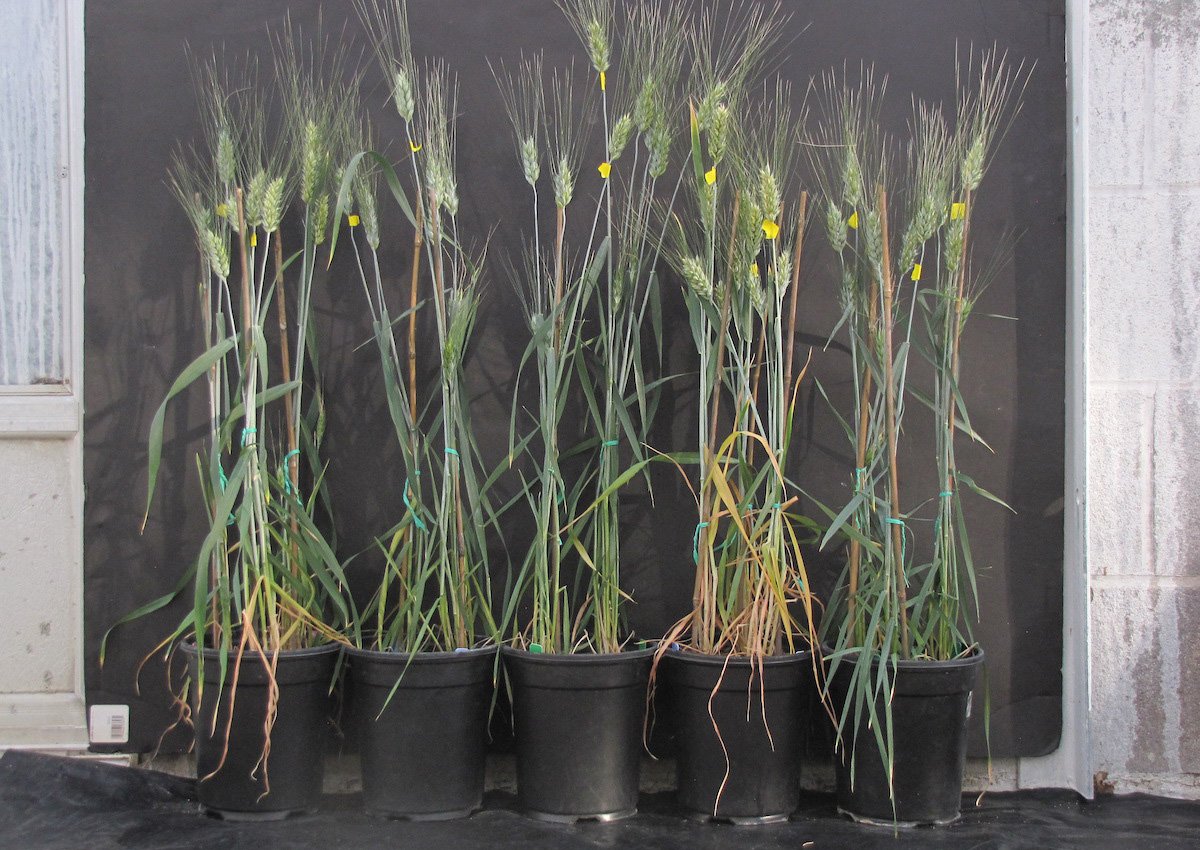
New Tool to Accelerate Crop Improvement with CRISPR
October 21, 2020| |
Scientists have faced the difficulty of growing plants from cells after tweaking their genomes. A new tool will now help this process by coaxing transformed cells, including those modified with the gene-editing system CRISPR-Cas9, to regenerate new plants.
Howard Hughes Medical Institute (HHMI) investigator Jorge Dubcovsky and his colleagues looked at two growth-promoting genes, GRF and GIF, that work together in young tissues or organs of plants ranging from moss to fruit trees. The team put these genes side-by-side, like a couple holding hands, before adding them to plant cells. They found that genetically altered wheat, rice, hybrid orange, and other crops produced many more shoots if those experiments included the linked GRF and GIF genes. In a variety of wheat, the appearance of shoots increased nearly eight-fold. The number of shoots in rice and the hybrid orange, meanwhile, more than doubled and quadrupled, respectively. The team also found that these shoots grew into healthy plants capable of reproducing on their own, with none of the defects that can result when scientists boost other development-controlling genes.
Caroline Roper, a plant pathologist at the University of California, Riverside who was not involved in the work, plans to use the new technology to study citrus greening, a bacterial disease that kills trees and renders oranges hard and bitter.
For more details, read the research news on the HHMI website or the paper in Nature Biotechnology
| |
You might also like:
- Rain-resistant Wheat Developed Using Genome Editing
- Geneticists Turn to Engineered Virus and CRISPR to Fight Citrus Disease
- Pocket K No. 54: Plant Breeding Innovation: CRISPR-Cas9
Biotech Updates is a weekly newsletter of ISAAA, a not-for-profit organization. It is distributed for free to over 22,000 subscribers worldwide to inform them about the key developments in biosciences, especially in biotechnology. Your support will help us in our mission to feed the world with knowledge. You can help by donating as little as $10.
-
See more articles:
-
News from Around the World
- WHO Refers to GM Mosquitoes as Beneficial Technology
- Scientists Use Glowing Venus Flytraps to Understand Its Closure Mechanism
- Pamela Ronald is 2020 World Agriculture Prize Laureate
- Pinkglow™, Del Monte's Pink Pineapple Now Available
- Indian Farmer Confirms Socio-economic Impact of Bt Cotton
- Biotech Experts to Tackle Global Impact of GM Crops
- EFSA Study Concludes Maize MON810 Poses No Risk to Humans, Animals, or the Environment
-
Research Highlights
- Researchers Pinpoint Peanut Genes Linked to Salt and Drought Tolerance
-
Plant
- New Tool to Accelerate Crop Improvement with CRISPR
- New Genome Editing Tool Designed to Make Big DNA Edits
-
Health
- International Team of Scientists Identify Common Vulnerabilities in COVID-19 and Other Lethal Coronaviruses
- COVID-19 Virus Can Survive 28 Days on Surfaces
-
Read the latest: - Biotech Updates (January 14, 2026)
- Gene Editing Supplement (December 17, 2025)
- Gene Drive Supplement (February 22, 2023)
-
Subscribe to BU: - Share
- Tweet

